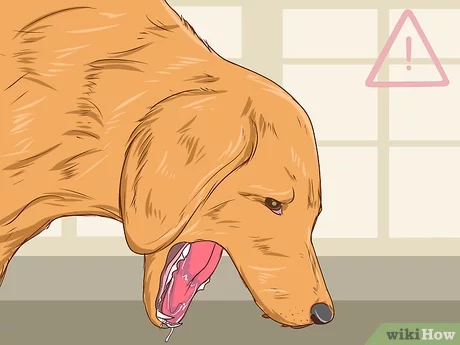Can A Dog Get Pneumonia From A Human
Can a Dog Get Pneumonia from a Human? What You Need to Know
As a dog owner, you may be concerned about whether your furry friend can catch pneumonia from you or other humans. Pneumonia is a serious respiratory infection that can affect dogs as well as people, and it can be caused by various pathogens, including bacteria, viruses, fungi, and parasites. While some types of pneumonia are specific to certain species, others can cross over and cause infections in different hosts. So, can a dog get pneumonia from a human? The answer is not simple, but let’s explore the topic in more detail.
What is Pneumonia?
Before we dive into the question of whether dogs can get pneumonia from humans, let’s define what pneumonia actually is. Pneumonia is an inflammation of the lungs that impairs their ability to function properly. The inflammation can affect different parts of the lungs, such as the alveoli (small air sacs), bronchioles (small tubes), or interstitial tissue (connective tissue). Depending on the cause and severity of the infection, pneumonia can lead to symptoms such as coughing, wheezing, fever, fatigue, chest pain, difficulty breathing, and even death.
Pneumonia can be classified in several ways based on its origin, duration, and presentation. For example:
– Community-acquired pneumonia (CAP) is acquired outside of hospitals or healthcare facilities and is usually caused by bacterial or viral infections.
– Hospital-acquired pneumonia (HAP) occurs within 48 hours of admission to hospitals or healthcare facilities and often involves multidrug-resistant bacteria.
– Aspiration pneumonia results from inhaling foreign substances into the lungs, such as food particles or vomit.
– Fungal pneumonia is caused by fungal spores that invade the lungs and can be particularly dangerous for immunocompromised individuals.
– Walking pneumonia is a milder form of pneumonia that may not cause severe symptoms but can still spread to others.
Pneumonia can affect dogs of all ages, breeds, and health conditions, but some dogs may be more susceptible to it than others. Factors that can increase the risk of pneumonia in dogs include:
– Age: Puppies and senior dogs are more vulnerable to infections due to their weaker immune systems.
– Breed: Certain breeds, such as Bulldogs, Pugs, and Boston Terriers, have shorter snouts and narrower airways that make them prone to respiratory problems.
– Health status: Dogs with underlying health issues, such as heart disease or diabetes, may have compromised lung function and be more susceptible to infections.
– Environment: Dogs that live in crowded or unsanitary conditions may be exposed to more pathogens that can cause pneumonia.
What Causes Pneumonia in Dogs?
As mentioned earlier, pneumonia in dogs can be caused by various pathogens. The most common causes of bacterial pneumonia in dogs are Streptococcus spp., Staphylococcus spp., Escherichia coli, Pasteurella multocida, Klebsiella spp., and Bordetella bronchiseptica. These bacteria can enter the lungs through inhalation or aspiration of contaminated droplets or secretions from infected dogs or humans. Bacterial pneumonia can also develop secondary to other respiratory infections or systemic diseases.
Viral pneumonia in dogs is less common than bacterial pneumonia but can still occur. The most common viruses that cause canine pneumonia are canine distemper virus (CDV), canine influenza virus (CIV), parainfluenza virus (CPiV), adenovirus type 2 (CAV-2), and respiratory syncytial virus (RSV). Viral pneumonia can be more severe and contagious than bacterial pneumonia and may require specific antiviral treatments.
Fungal pneumonia in dogs is usually caused by Aspergillus spp., Cryptococcus spp., or Blastomyces dermatitidis. These fungi can be found in soil, decaying organic matter, or bird droppings and can enter the lungs through inhalation. Fungal pneumonia is more common in dogs that live in endemic areas or have weakened immune systems.
Parasitic pneumonia in dogs is caused by lungworms, such as Angiostrongylus vasorum or Dirofilaria immitis. These worms can infect dogs that ingest infected snails or slugs (A. vasorum) or mosquitoes (D. immitis). Parasitic pneumonia can cause coughing, wheezing, and respiratory distress and may require specific deworming treatments.
Can a Dog Get Pneumonia from a Human?
Now, let’s get back to the main question: can a dog get pneumonia from a human? The short answer is yes, but it depends on several factors. Dogs and humans share some respiratory pathogens, such as Streptococcus spp., Staphylococcus aureus, and Mycoplasma pneumoniae, which means they could potentially infect each other with these bacteria. However, the likelihood of transmission depends on the following:
– The type of pathogen: Not all respiratory pathogens are transmissible between different species. For example, Bordetella bronchiseptica can cause kennel cough in dogs and respiratory infections in cats but rarely affects humans.
– The virulence of the pathogen: Some strains of bacteria or viruses may be more contagious or pathogenic than others, making them more likely to cause cross-species infections.
– The susceptibility of the host: Different species have different immune systems that may respond differently to the same pathogen. In general, humans are less susceptible to bacterial infections that affect dogs because our immune systems are better equipped to fight them off.
– The mode of transmission: Respiratory infections can be spread through direct or indirect contact with infected animals or humans. Dogs that live or interact closely with infected humans may be more likely to catch their germs, especially if they inhale droplets from coughs or sneezes.
In conclusion, while it is possible for a dog to get pneumonia from a human, the risk of transmission is relatively low and depends on several factors. However, it is always a good idea to practice good hygiene and avoid exposing your dog to sick people or animals, especially if your dog is young, old, or has underlying health conditions that make them more susceptible to infections.
How to Prevent Pneumonia in Dogs
Prevention is the best way to protect your dog from pneumonia and other respiratory infections. Here are some tips to keep in mind:
– Vaccinate your dog against common respiratory pathogens such as Bordetella bronchiseptica or canine influenza virus.
– Keep your dog’s environment clean and well-ventilated, especially if you have multiple dogs or other pets.
– Avoid exposing your dog to smoke, dust, chemicals, or other irritants that can damage their lungs.
– Feed your dog a balanced diet that provides adequate nutrients for immune function.
– Exercise your dog regularly but avoid strenuous activities that may cause excessive panting or stress on their respiratory system.
– Take your dog to regular check-ups with a veterinarian who can detect and treat any underlying health issues that may predispose them to pneumonia.
– If you suspect your dog has symptoms of pneumonia, such as coughing, lethargy, fever, or difficulty breathing, seek veterinary care immediately. Early diagnosis and treatment can improve the chances of recovery and prevent complications.
Conclusion
Pneumonia is a serious respiratory infection that can affect both dogs and humans. While it is possible for dogs to catch pneumonia from humans or vice versa, the risk of transmission depends on several factors. As a responsible dog owner, you can take steps to prevent pneumonia in your furry friend by practicing good hygiene, providing proper care and nutrition, and seeking prompt veterinary attention if needed. Remember that dogs cannot tell us when they are sick, so it’s up to us to be vigilant and proactive in protecting their health and well-being. And don’t forget to give your dog plenty of love and affection, because a happy dog is a healthy dog!



